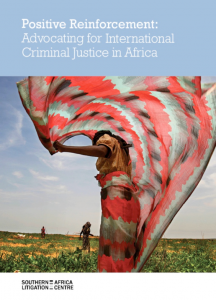
Blantyre-On 1 September 2016, a three-member bench of the High Court of Malawi will hear arguments on the constitutionality of section 184(1)(c) of the Penal Code. The applicant is a street vendor by trade and was arrested on his way to sell plastic bags. The applicant was charged under section 184(1)(c) and his criminal trial was subsequently stayed pending the determination of the constitutional petition filed by the applicant. The applicant submits that the offence is outdated and vague which results in its arbitrary enforcement by the police. The applicant submits that the offence results in a number of rights violations, including his rights to dignity, privacy, freedom from inhumane and degrading treatment, freedom and security of person, freedom from discrimination, and freedom of movement.
The Legal Aid Bureau, Centre for Human Rights Education, Advice and Assistance (CHREAA), and Paralegal Advisory Services Institute (PASI) have been admitted as amicus curiae. PASI submits that the offence also violates the right of access to justice, and the rights of arrested persons. CHREAA submits that the alleged objective of the offence, to prevent crime, is without an evidential basis and that the continued application of the offence in a manner that violates human rights is not proportional to its objective.
What: Gwanda v State
Where: High Court, Blantyre, Malawi
When: 9h00, Thursday 1 September 2016
Section 184(1)(c) of the Penal Code provides that “every person found in or upon or near any premises of in any road or highway or any place adjacent thereto or in any public place at such time and under such circumstances as to lead to the conclusion that such person is there for an illegal or disorderly purpose, is deemed a rogue and vagabond.” The offence has frequently been criticised by civil society, academics and the courts for the arbitrary manner in which it has been enforced. The offence of being a rogue and vagabond exists in the same wording in the Penal Codes of many African countries and dates back to the era when these countries were subjected to British colonial rule, including Nigeria, Gambia, Zambia, Uganda, Botswana, Seychelles, and Tanzania.
The applicant is represented by Mandala Mambulasa, and the Attorney General is represented by Senior State Advocate Apoche Itimu. The amicus curiae are represented by Masauko Chamkakala (Legal Aid Bureau), Fostino Maele (PASI) and Violet Jumbe (CHREAA).
For updates follow twitter: @follow_salc, @chreaamalawi
Court documents in the case are available at: https://www.southernafricalitigationcentre.org/cases/ongoing-cases/malawi-challenging-constitutionality-of-rogue-and-vagabond-offence/
Issued by: The Southern Africa Litigation Centre (SALC) and the Centre for Human Rights Education, Advice and Assistance.



